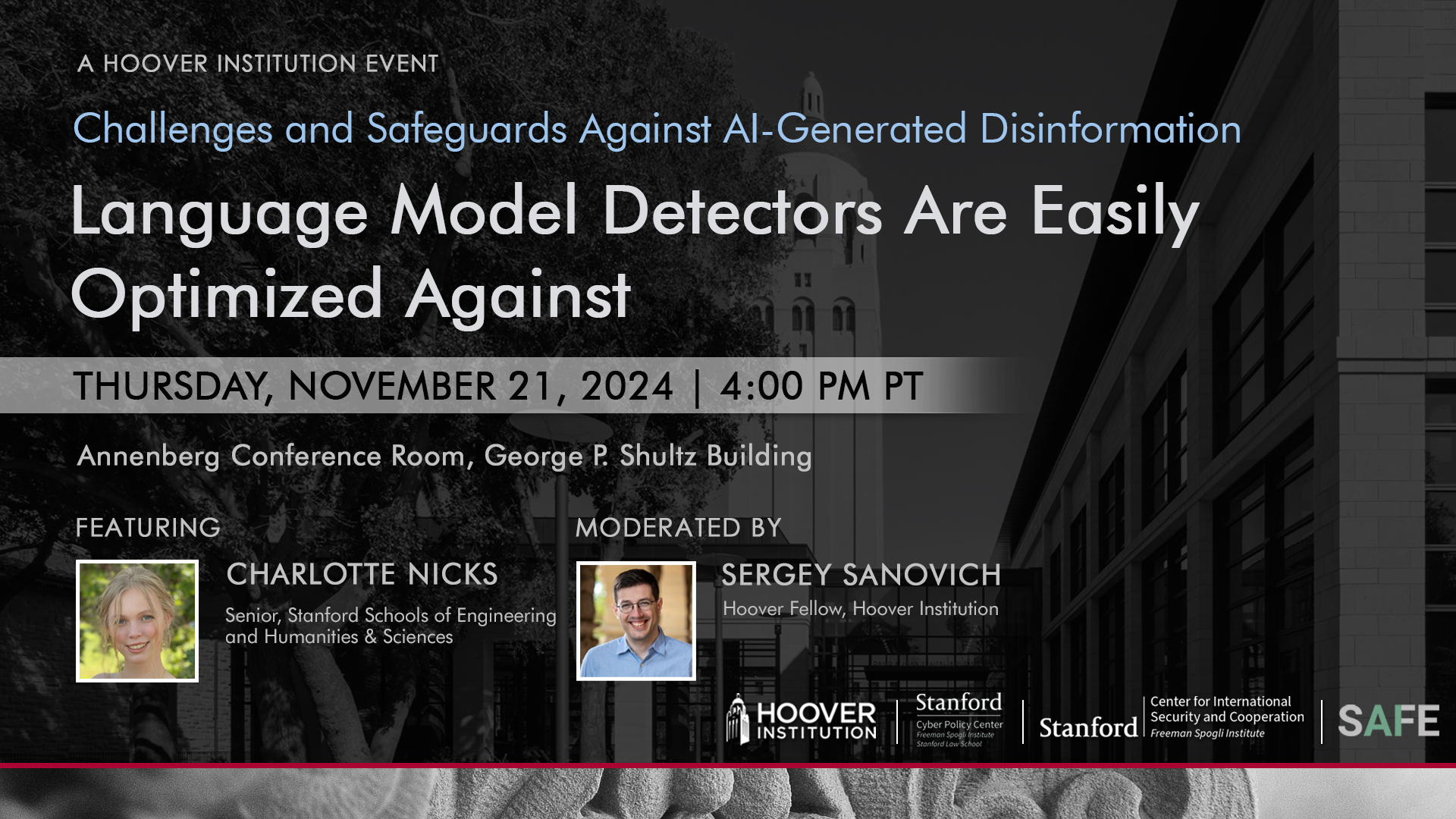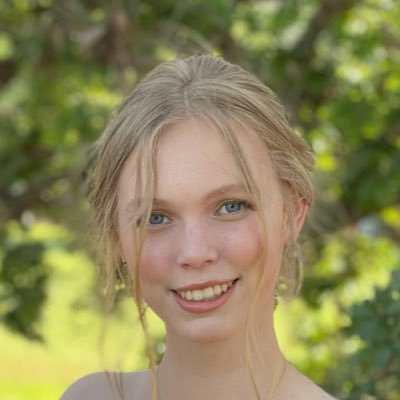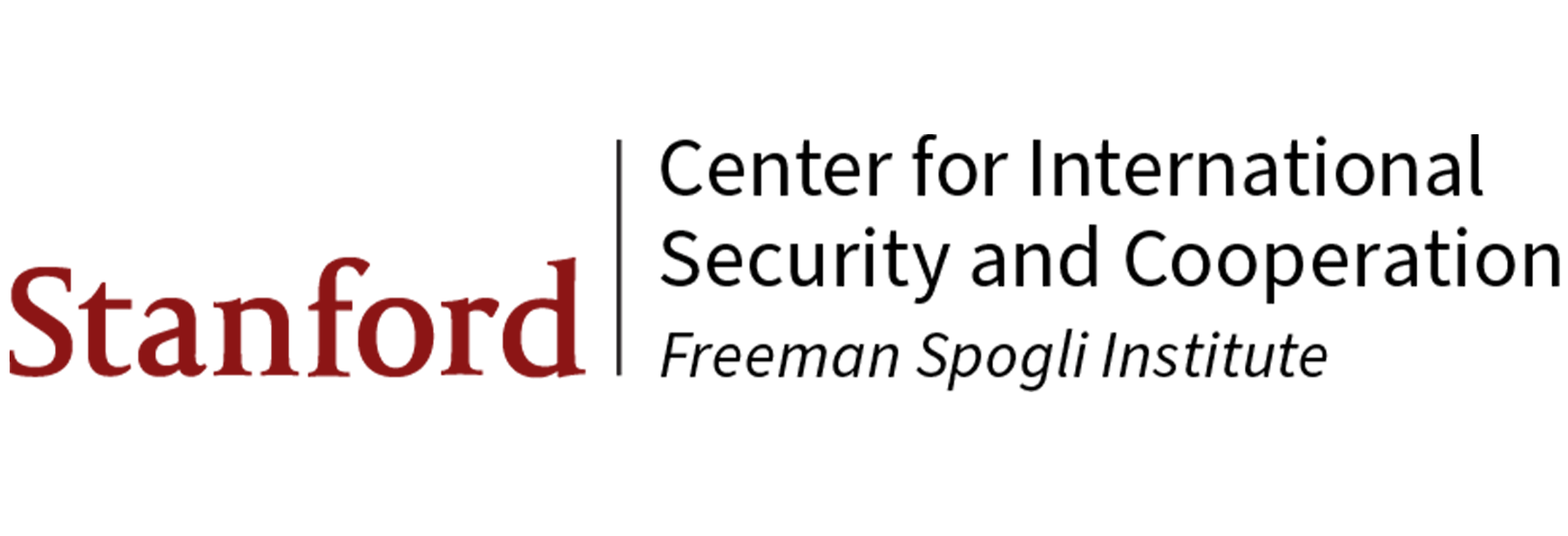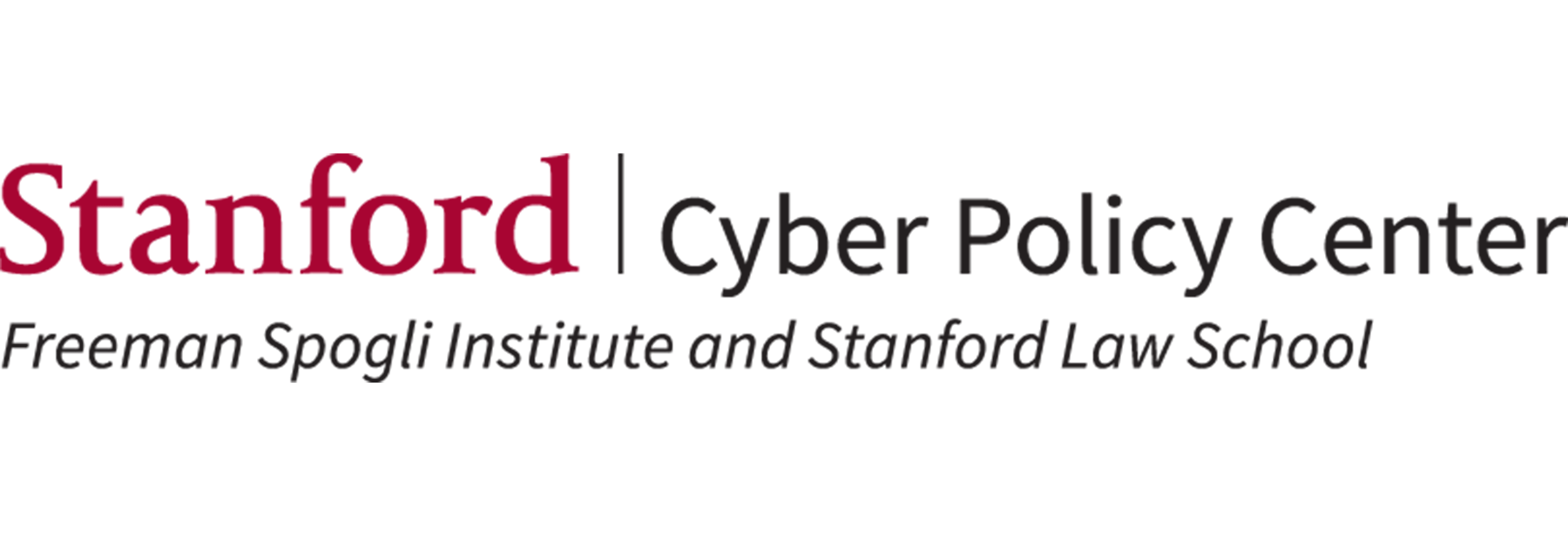The fourth session of Challenges and Safeguards against AI-Generated Disinformation will discuss Language Model Detectors Are Easily Optimized Against with Charlotte Nicks and Sergey Sanovich on Thursday, November 21, 2024 at 4:00 pm in Annenberg Conference Room, Shultz Building.
Read the paper here.

ABOUT THE SPEAKERS

Charlotte Nicks is a senior at Stanford, studying mathematics and electrical engineering. She has been selected as a Stanford STEM Fellow and worked at the IRIS Lab at the Stanford Artificial Intelligence Laboratory on AI detection. Her academic interests include signal processing, machine learning, and complex analysis. She has served as co-President of Affiliated Stanford Entrepreneurial Students, Stanford’s global entrepreneurship society, and Stanford Students in Biodesign. During summers, Charlotte interned as a quantitative trader at Jane Street and as an autonomy engineer at AeroVironment.

Sergey Sanovich is a Hoover Fellow at the Hoover Institution. Before joining the Hoover Institution, Sergey Sanovich was a postdoctoral research associate at the Center for Information Technology Policy at Princeton University. Sanovich received his PhD in political science from New York University and continues his affiliation with its Center for Social Media and Politics. His research is focused on disinformation and social media platform governance; online censorship and propaganda by authoritarian regimes; and elections and partisanship in information autocracies. His work has been published at the American Political Science Review, Comparative Politics, Research & Politics, and Big Data, and as a lead chapter in an edited volume on disinformation from Oxford University Press. Sanovich has also contributed to several policy reports, particularly focusing on protection from disinformation, including “Securing American Elections,” issued by the Stanford Cyber Policy Center at its launch.
ABOUT THE SERIES
Distinguishing between human- and AI-generated content is already an important enough problem in multiple domains – from social media moderation to education – that there is a quickly growing body of empirical research on AI detection and an equally quickly growing industry of its non/commercial applications. But will current tools survive the next generation of LLMs, including open models and those focused specifically on bypassing detection? What about the generation after that? Cutting-edge research, as well as presentations from leading industry professionals, in this series will clarify the limits of detection in the medium- and long-term and help identify the optimal points and types of policy intervention. This series is organized by Sergey Sanovich.






















